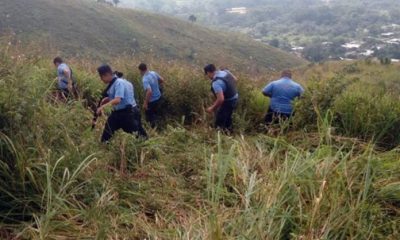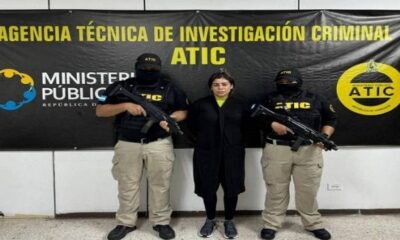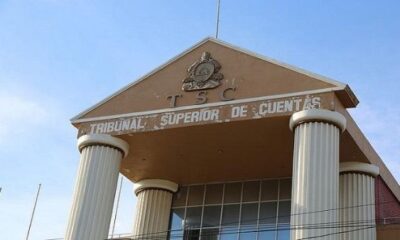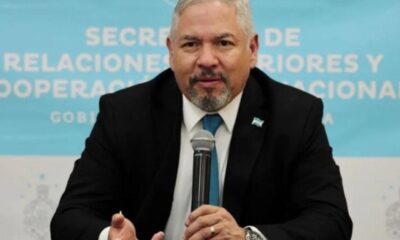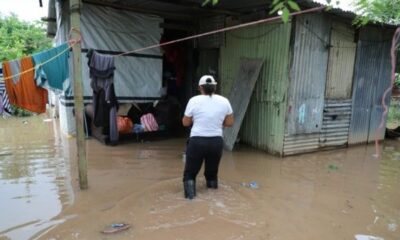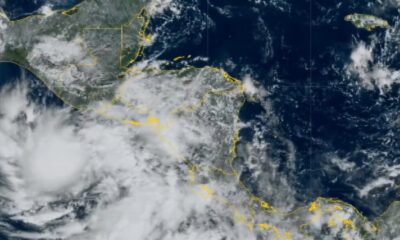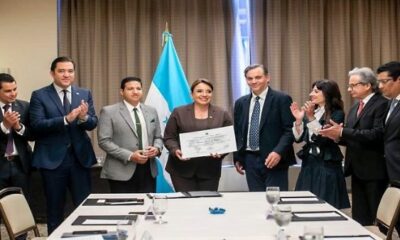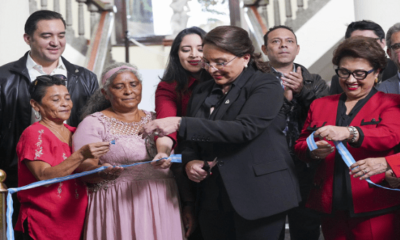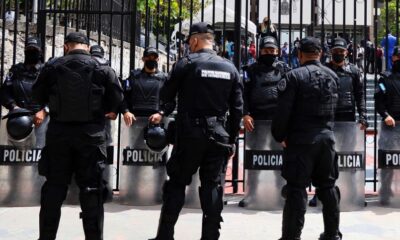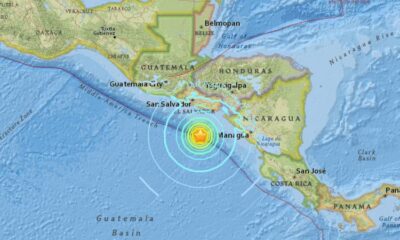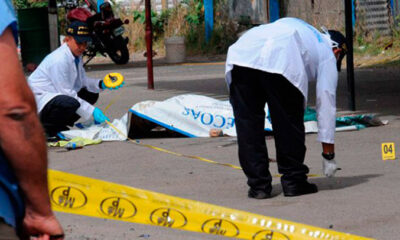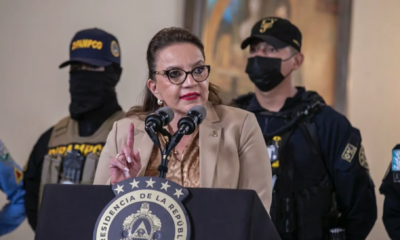Central America
Honduras transfers 1,628 inmates to maximum security prisons
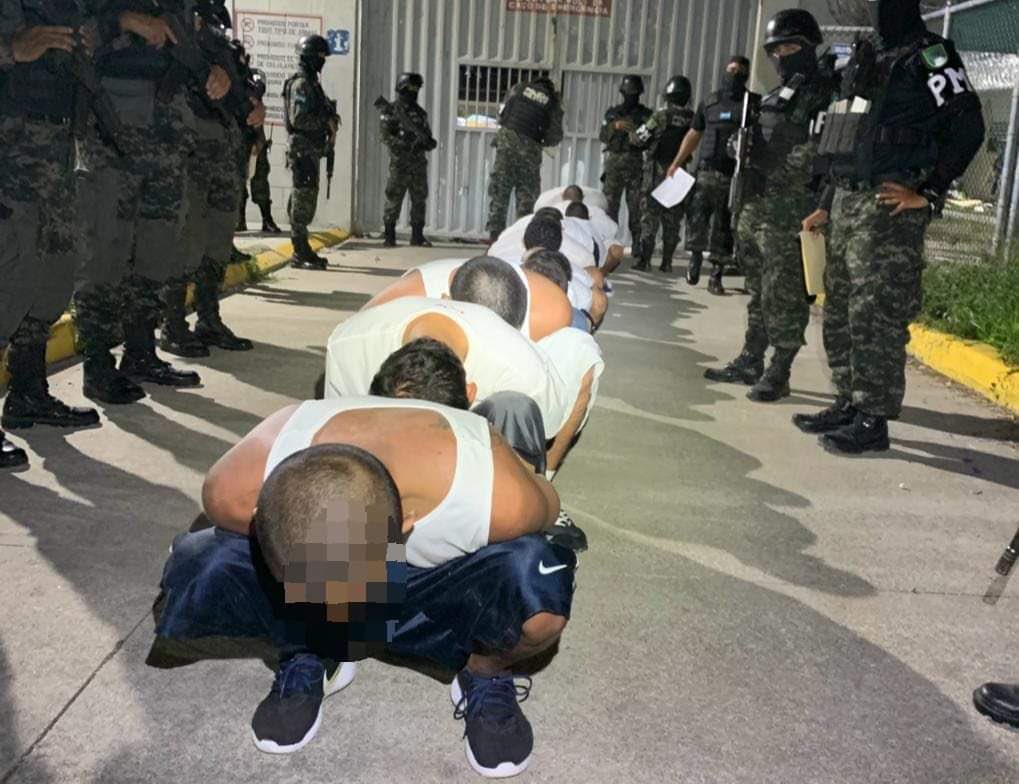
July 12 |
The Honduran Armed Forces, through the Military Police of Public Order (PMOP), transferred on Tuesday some 1,628 inmates classified as highly dangerous to two maximum security prisons.
The PMOP spokesman, José Antonio Cuello, informed that 802 gang members were transferred from the prison of “El Pozo”, Santa Bárbara (northwest), to the penal center “La Tolva”, in Morocelí (east).
It was also reported that some 826 prisoners were relocated from “La Tolva” to “El Pozo”, bringing the total number of inmates to 1,628.
Through the social network Twitter, the Honduran Minister of Defense, José Manuel Zelaya, highlighted: “The Military Police is carrying out the transfer of prisoners. Without rest, dismantling the schools of organized crime and retaking control and security of prisons”.
According to the authorities, the operations were carried out in compliance with the respect for the human rights of the persons deprived of liberty, as well as with the presence and supervision of the high commands to verify that the actions were carried out in compliance with the law.
Promoted by the Government of Xiomara Castro, the operation is part of the Fe y Esperanza program, with the purpose of improving security in the Central American country, where, in addition, the construction of a maximum security prison in the Islas del Cisne is planned, among other actions.
The measures were taken in response to the events of June 20, when at least 41 women died in a riot at the Centro Femenino de Adaptación Social (Cefas), near Tegucigalpa (capital).
Central America
Nicaragua’s Ortega and Murillo Mourn Pope Francis, Acknowledge ‘Difficult’ Relationship

Nicaraguan President Daniel Ortega and Vice President Rosario Murillo, who also serve as co-leaders of the country, expressed their condolences on Monday following the death of Pope Francis, acknowledging that their relationship with the late pontiff had been “difficult” and “troubled.” Nicaragua officially suspended diplomatic ties with the Vatican during his papacy.
“Our relationship, as Nicaraguans who are believers, devoted and faithful to the doctrine of Christ Jesus, was difficult and troubled—unfortunately shaped by adverse and painful circumstances that were not always understood,” Ortega and Murillo wrote in a message of condolence.
“Despite the complexity and hardships, despite the manipulation we all know occurred, despite everything, we kept our hope alive through Christian faith,” they continued. “We understood the distance, and above all, the complicated and strained communication that prevented better relations. We also recognized the confusion caused by strident voices that disrupted any attempt at genuine interaction.”
Pope Francis had previously compared the Ortega regime to communist dictatorships and even to Hitler, a remark that further strained relations between Managua and the Holy See.
Central America
Cardinal Rodríguez to Attend Funeral of Pope Francis: “He Was Very Dear to Me”

Honduran Cardinal Óscar Andrés Rodríguez announced on Monday that he will attend the funeral services of Pope Francis, who passed away at the age of 88 at his residence in Casa Santa Marta due to a stroke.
“We will be there throughout the novena and then, God willing, at the burial,” Rodríguez said in a phone interview with HRN Radio in Tegucigalpa, apparently calling from Spain.
He added that the last time he saw Pope Francis was in October 2024, during and at the end of that year’s synod, and that they remained in contact through email. “Sometimes, the Pope would even call me,” said Rodríguez, who was born on December 29, 1942, and was made a cardinal by Pope John Paul II on February 21, 2001.
Rodríguez expressed deep sorrow over the passing of Pope Francis, saying: “He was a very dear person to me.”
However, he also shared a message of hope, pointing out that the Holy Father passed away during Easter: “This is a sign. He gave his life completely like the Lord Jesus, and though he died, we believe in faith that he has risen, now with Christ in eternal life.”
Rodríguez, who for ten years coordinated the Vatican’s Council of Cardinals, was one of the eight cardinals selected by Pope Francis to help govern the Catholic Church and reform the Roman Curia.
In January 2023, upon turning 80, Rodríguez stepped down as Archbishop of Tegucigalpa, and Pope Francis appointed Spanish priest José Vicente Nácher Tatay as his successor.
Central America
Senator Van Hollen Meets with Deported MS-13 Member in El Salvador; Trump and Bukele React

U.S. Democratic Senator Chris Van Hollen, representing the state of Maryland, held a meeting in El Salvador with deported MS-13 gang member Kilmar Ábrego García, a member of the criminal group classified by the U.S. government as a terrorist organization.
“Kilmar Ábrego García, miraculously resurrected from the ‘extermination camps’ and ‘torture chambers,’ now sipping margaritas with Senator Van Hollen in the tropical paradise of El Salvador!” wrote President Nayib Bukeleon X (formerly Twitter), sharing photos of Van Hollen, Ábrego García, and a lawyer sitting together at a Salvadoran hotel.
The deported gang member is seen wearing a plaid shirt and a flat-brimmed cap, seated at a table with glasses and coffee cups. The senator also shared images of the meeting on his own social media accounts.
Bukele reaffirmed that Ábrego will remain in El Salvador and will not be returned to the United States.
“Now that his health has been confirmed, he has earned the honor of remaining under the custody of El Salvador,” Bukele added.
Former U.S. President Donald Trump criticized the senator’s meeting with Ábrego on Truth Social, calling Van Hollen “a fool” for advocating for Ábrego’s return to the U.S.
-

 Central America4 days ago
Central America4 days agoSenator Van Hollen Meets with Deported MS-13 Member in El Salvador; Trump and Bukele React
-

 Central America3 days ago
Central America3 days agoNicaragua’s Ortega and Murillo Mourn Pope Francis, Acknowledge ‘Difficult’ Relationship
-

 Central America3 days ago
Central America3 days agoCardinal Rodríguez to Attend Funeral of Pope Francis: “He Was Very Dear to Me”
-

 International4 days ago
International4 days agoPope Francis Appears for Easter Blessing, Calls for Peace and Religious Freedom
-

 International3 days ago
International3 days agoDominican Republic Declares Three Days of Mourning for Pope Francis
-

 International3 days ago
International3 days agoDHS Secretary Kristi Noem’s Purse Stolen in D.C. Restaurant Heist
-

 International2 days ago
International2 days agoFrom the transfer of the coffin to the funeral, three days to say goodbye to Pope Francis
-

 International2 days ago
International2 days agoPope Francis and Trump, a relationship of disagreements marked by migration
-

 International3 days ago
International3 days agoPope Francis: The Quiet Architect Behind the U.S.-Cuba Thaw
-

 International2 days ago
International2 days agoWithin Francis’ private wake: respect and prayer for the deceased pope
-

 International2 days ago
International2 days agoModi returns to India and shortens his visit to Saudi Arabia after a deadly attack in Kashmir
-

 International2 days ago
International2 days agoA very heterogeneous and divided conclave will elect the new pope
-

 International2 days ago
International2 days agoTrump’s emissary will visit Russia this week for consultations on the arrangement in Ukraine
-

 International2 days ago
International2 days agoThe pope last called the Gaza parish on Saturday and asked about the children
-

 International2 days ago
International2 days agoCardinal Becciu’s enigma: will he enter the conclave?
-

 International2 days ago
International2 days agoAmerican universities and colleges sign a letter against Trump’s policy
-

 International2 days ago
International2 days agoA candidate for the Supreme Court denounces an unequal dispute in the judicial election of Mexico
-

 International2 days ago
International2 days agoMaradona’s house arrest is again a focus of tension in the trial for his death
-

 International2 days ago
International2 days agoThe Government of Colombia presents twelve questions that it will propose in a popular consultation to promote its reforms
-

 International2 days ago
International2 days agoEl Salvador formalizes the proposal for the exchange of Venezuelan deportees, according to Bukele
-

 International2 days ago
International2 days agoThe Peruvian Public Ministry denounces the former attorney general for an alleged corruption case
-

 International2 days ago
International2 days agoBurma’s military junta extends ceasefire until April 30 due to the earthquake
-

 International2 days ago
International2 days agoA judge orders the Trump Government to restore Voice of America services
-

 International2 days ago
International2 days agoRoyal quinoa, the superfood that grows in front of the largest salt flat in the world in Bolivia
-

 International2 days ago
International2 days agoInternational leaders begin to confirm their presence at Pope Francis’ funeral
-

 International2 days ago
International2 days agoDonald Trump will visit Saudi Arabia, Qatar and the United Arab Emirates in mid-May
-

 International2 days ago
International2 days agoChurch charges ceased or resigned in the papacy of Francis for cases of pedophilia
-

 International2 days ago
International2 days agoThe president of the World Bank underlines his intention to lift his veto on nuclear energy
-

 International2 days ago
International2 days agoMarco Rubio reorganizes the State Department to eliminate offices and jobs
-

 International4 hours ago
International4 hours agoThe Arab League supports Hamas handing over control of Gaza and weapons to the Palestinian Authority
-

 International2 days ago
International2 days agoThe Brazilian Supreme Court opens trial against six others accused of leading the coup attempt
-

 International2 days ago
International2 days agoA judge in the United States stops the deportation to El Salvador of a hundred Venezuelans
-

 International4 hours ago
International4 hours agoMigrants want to stay on Mexico’s southern border because of Sheinbaum’s industrial plan
-

 International5 hours ago
International5 hours agoThe pope’s doctor reveals his last moments of life and that he wanted to “die at home”
-

 International4 hours ago
International4 hours agoFrom email to marriage: the day Pope Francis married a Uruguayan couple
-

 International4 hours ago
International4 hours agoThe Pope’s funeral procession through the center of Rome worries the Italian authorities
-

 International4 hours ago
International4 hours agoA group of the poor and a delegation of migrants will participate in the funeral and burial of the pope on Saturday






















